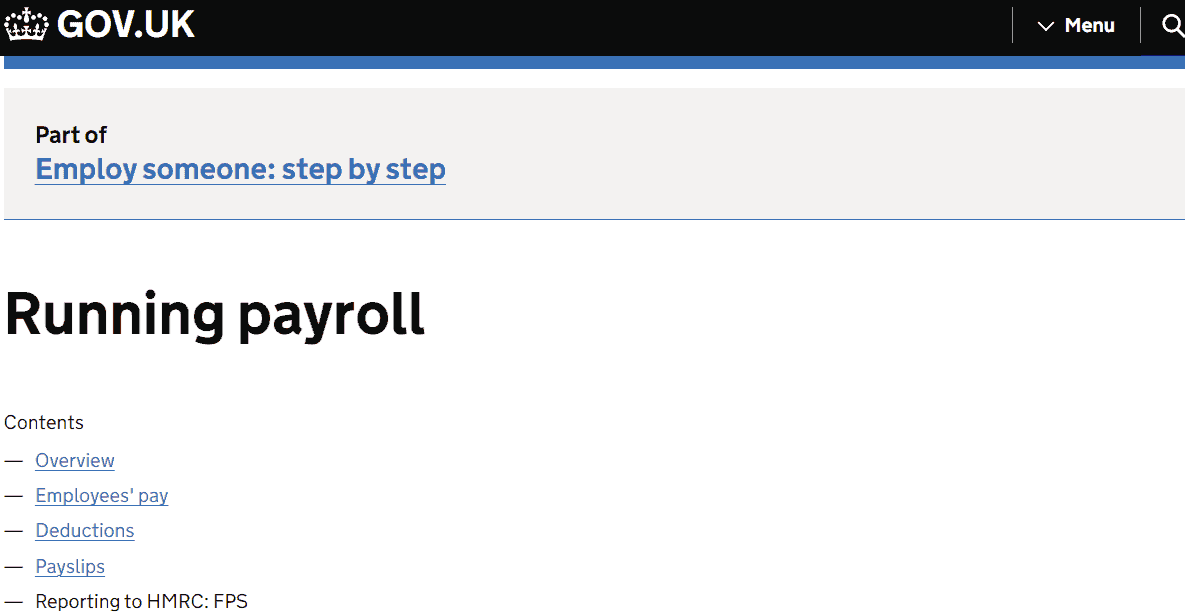This guide will explain what RTI payroll is and why it matters to your small business.
About RTI Payroll
RTI stands for Real Time Information Payroll. It is a process that employers can use under the PAYE (Pay As You Earn) payroll system. This means that employers pay deductions to HMRC every time they pay employees.

RTI was launched in 2013. It allows employers to provide HMRC with payroll information with every payment. Before this was launched, employers were required to do this at the end of every financial year.
Employers are required to submit information to HMRC about their employee’s FPS (Full Payment Submissions) in regard to National Insurance contributions, Income Tax and other payroll payments and deductions.
RTI Guidelines
There are different data submission types with RTI payroll. It is essential that businesses know the difference between these to fully comply and avoid penalties. These include:
FPS (Full Payment Submission)
FPS is the most frequently used submission type. It concerns the deductions and payments made when paying employees.
A Full Payment Submission needs to be paid prior to, or on the day of, the employee’s pay. It will also be made with every payment.
EPS (Employer Payment Summary)
EPS payments concern values that must be reported to HMRC but can’t be included in the FPS.
Employer Payment Summary (EPS) payments can be submitted with an FPS in various circumstances. These include:
- A claim for Employment Allowance
- Reclaiming CIS (Construction Industry Scheme) deductions for limited companies
- National Insurance contribution claims for previous tax years
- Reclaiming statutory maternity payments
- Reclaiming paternity payments
- Reclaiming adoption payments
- Reclaiming shared parental payments
- Reclaiming parental bereavement payments
- To make Apprenticeship Levy payments (for employers or those with annual bills in excess of £3m)
NVR (NINO Verification Request)
National Insurance Verification Requests allow employers to validate or obtain an employee’s national insurance number.
The requested information will be viewable by employers on their HMRC PAYE Online account.
EYU (Earlier Year Update)
EYUs can be sent to HMRC to notify them of incorrect figures in previous RTI reports. This allows employers to correct past mistakes such as incorrectly reported pay for an employee.
Using RTI Payroll
Employers can invest in payroll software to streamline processes and simplify RTI payroll. Businesses should prioritise investing in RTI-enabled payroll software.
To prepare their RTI payroll, an employer must:
- Remove old employees and ensure only current employees are present on the payroll
- Register PAYE for employers on HMRC’s website
- Check PAYE references on the payroll tool matches that of the HMRC reference
- Check the Accounts Office Reference on the Employers page is correct
When employers are paying their employees they must ensure the FPS is sent with it. They must also:
- Enter the pay run and select “RTI submission” on their payroll tool
- Create their RTI submission
- Ensure the payroll system creates an FPS automatically
- Enter the HMRC Online password and USER ID
FAQs
Do you have to submit RTI to HMRC?
It is mandatory for employers to submit relevant payment and deduction information to HMRC. Failure to report your RTI on time can result in a range of penalties.
The size of the penalty is determined by the number of employees in the scheme. For more information on penalties, visit the government website.
How does RTI benefit employees?
The main benefit for employers using the RTI submission scheme as it frees up time at the end of the tax year.
Using software to manage payroll data on a monthly basis removes the need for an annual report.
How can companies stay RTI compliant?
In-house RTI compliance is essential to avoid penalties. Using RTI-ready software or an experienced accountant will help companies report payments and deductions accurately and timeously.
Conclusion
RTI payroll allows employers to report payments and deductions to HM Revenue & Customs at the end of the tax month or quarter. Providing real-time information significantly reduces the time and stress caused by reporting at the end of the tax year.
Using an experienced accountant or high-quality software will significantly reduce the risk of incorrect submission.
You can check with the software provider to ensure the RTI system and HR software are fully enabled.
Late RTI submissions will result in penalties, so it is essential that employers submit information in a timely fashion.
Sources
https://www.freshbooks.com/en-gb/hub
https://squareup.com/gb/en/glossary
https://www.sumup.com/en-gb/invoices/dictionary/
https://www.breathehr.com/en-gb/blog/topic/payroll-and-finance/what-is-rti-payroll
https://payfit.com/blog/hmrc-rti-submissions-explained/
https://www.peoplehr.com/en-gb/hr-systems/hr-payroll-software/what-is-rti-payroll/
https://www.gov.uk/running-payroll/reporting-to-hmrc-eps
https://www.gov.uk/guidance/what-happens-if-you-dont-report-payroll-information-on-time